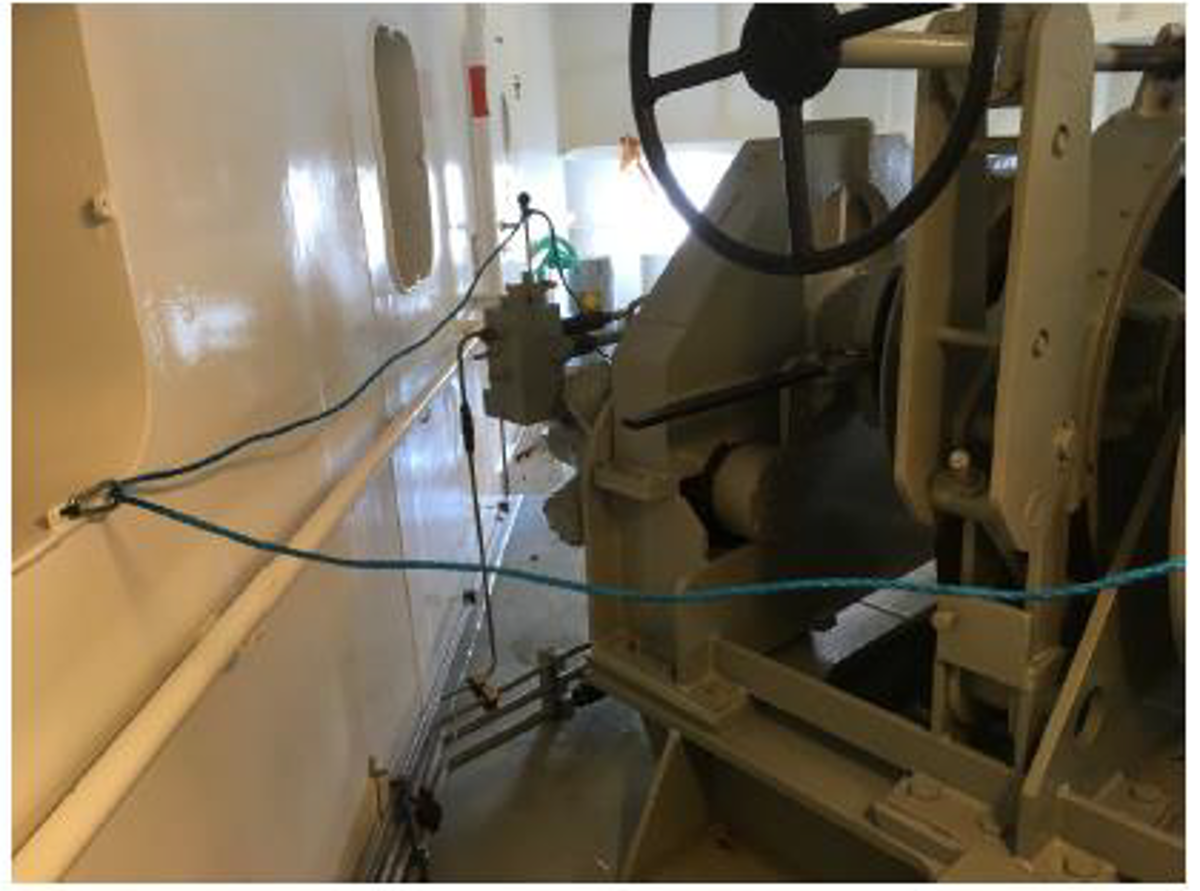Unsafe mooring practices
- Safety Flash
- Published on 25 July 2017
- Generated on 14 February 2026
- IMCA SF 18/17
- 1 minute read
Jump to:
During a routine marine inspection of a vessel it was observed that rope lines had been attached to the mooring winch control levers to facilitate ‘remote’ operation of the winches.
What happened?
The observed practice is inappropriate and unsafe. There are a number of very good reasons why, including:
- accidentally pulling on the wrong line and performing an unintended action
- crew member getting entangled in the lines and inadvertently operating the winch
- lack of proper control of winches.
Mooring and unmooring a vessel is inherently a potentially dangerous operation and requires crews to be in full control of all associated equipment.

Recommendations
Adequate personnel under the supervision of a certified officer should be available for:
- handling of equipment and gear
- communications
- directing the winchman.
Members are referred to the following IMCA publications:
- IMCA HSS029, M214 – Mooring practice safety guidance for offshore vessels when alongside in ports and harbours
Related safety flashes
-
IMCA SF 04/09
2 April 2009
IMCA Safety Flashes summarise key safety matters and incidents, allowing lessons to be more easily learnt for the benefit of the entire offshore industry.
The effectiveness of the IMCA Safety Flash system depends on the industry sharing information and so avoiding repeat incidents. Incidents are classified according to IOGP's Life Saving Rules.
All information is anonymised or sanitised, as appropriate, and warnings for graphic content included where possible.
IMCA makes every effort to ensure both the accuracy and reliability of the information shared, but is not be liable for any guidance and/or recommendation and/or statement herein contained.
The information contained in this document does not fulfil or replace any individual's or Member's legal, regulatory or other duties or obligations in respect of their operations. Individuals and Members remain solely responsible for the safe, lawful and proper conduct of their operations.
Share your safety incidents with IMCA online. Sign-up to receive Safety Flashes straight to your email.